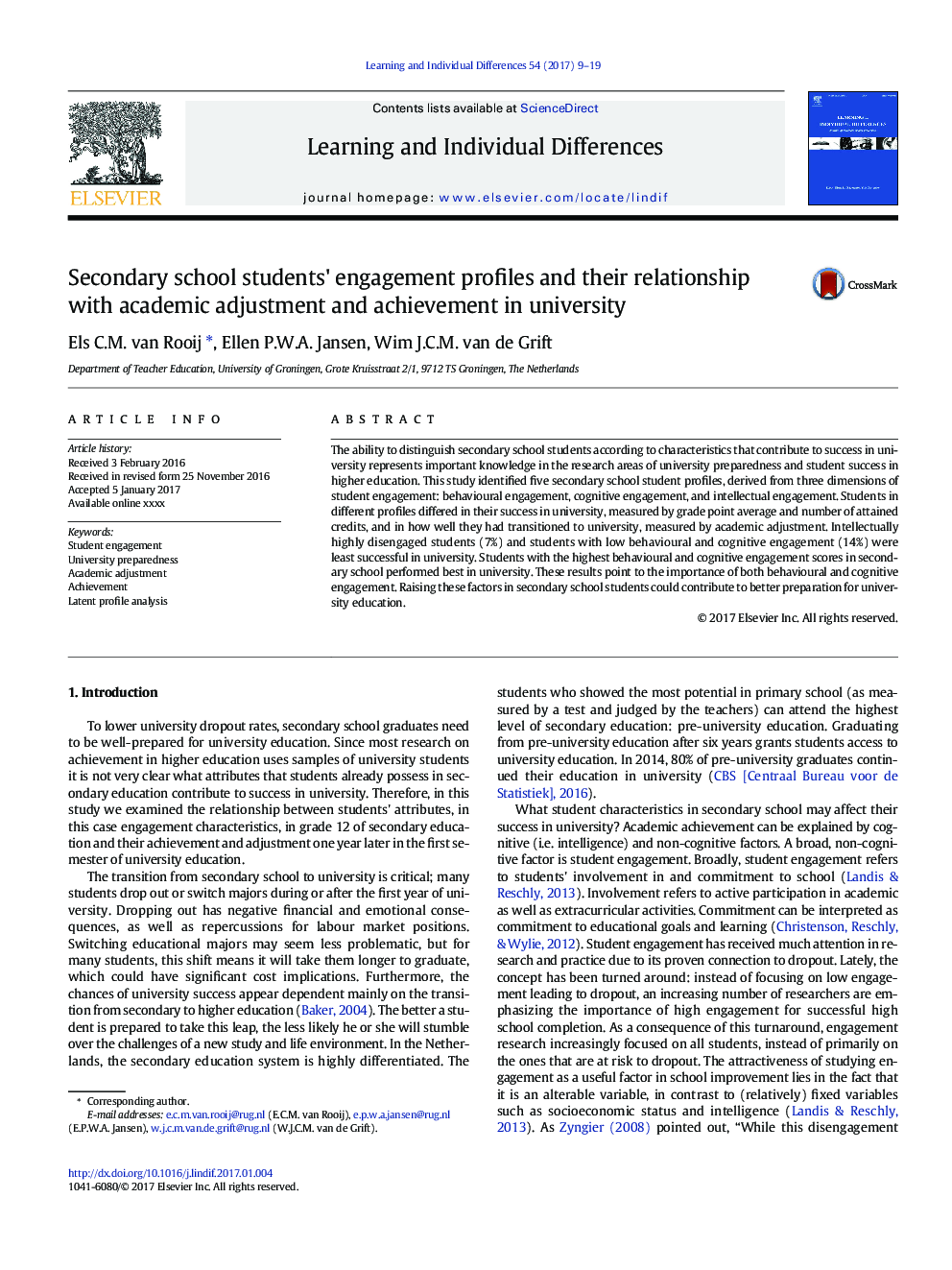| Article ID | Journal | Published Year | Pages | File Type |
|---|---|---|---|---|
| 4940148 | Learning and Individual Differences | 2017 | 11 Pages |
Abstract
The ability to distinguish secondary school students according to characteristics that contribute to success in university represents important knowledge in the research areas of university preparedness and student success in higher education. This study identified five secondary school student profiles, derived from three dimensions of student engagement: behavioural engagement, cognitive engagement, and intellectual engagement. Students in different profiles differed in their success in university, measured by grade point average and number of attained credits, and in how well they had transitioned to university, measured by academic adjustment. Intellectually highly disengaged students (7%) and students with low behavioural and cognitive engagement (14%) were least successful in university. Students with the highest behavioural and cognitive engagement scores in secondary school performed best in university. These results point to the importance of both behavioural and cognitive engagement. Raising these factors in secondary school students could contribute to better preparation for university education.
Related Topics
Social Sciences and Humanities
Psychology
Developmental and Educational Psychology
Authors
Els C.M. van Rooij, Ellen P.W.A. Jansen, Wim J.C.M. van de Grift,
